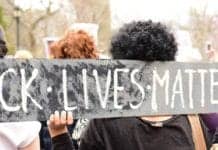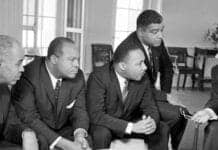Every single eligible citizen who is 18 years old on Election Day has the constitutional right to vote. A right that cannot be restricted because of tricks, wealth, property ownership, fiscal judgment, gender, national origin or race.
That’s the law, but:
In Mississippi, state officials tried to hide an important Senate race at the bottom of the ballot rather than place it at the top to make it less likely that voters would find it.
In Alabama, after decades of litigation on the issue, state officials continue to manipulate felon disfranchisement laws because their state’s constitution grants rights that those officials’ personal preferences would lead them to deny.
In Indiana the state’s stringent photo identification rules could decide who claims the state’s electoral votes – and perhaps the presidency.
In Louisiana, election officials are preoccupied with purging those displaced by Hurricane Katrina from the rolls even as they struggle to rebuild.
And while the nation confronts an economic upheaval not seen since the Great Depression – and one driven largely by home foreclosures – the Republican Party chairman in Macomb County, Michigan, unveiled a plan to challenge voters on Election Day based on a foreclosure list. The scheme would have disproportionately denied African Americans the chance to vote.
It’s not yet clear whether or how the issues in Indiana, Alabama and Louisiana will be resolved. In Mississippi, the state’s Supreme Court declared that a U.S. Senate race is a “national election” that must be listed together with the other national races. In Michigan, Macomb County election officials quickly assured homeowners facing foreclosure that they have the right to vote. Homeless people can also vote if they are registered.
These examples prove that today there are still too many who seek to win elections by blocking their opponent’s supporters rather than by mobilizing their own.
Once, those who employed such tactics had the advantage. Disfranchisement was so firmly rooted in our nation that for generations even constitutional amendments were powerless to stop it. But by the 1960s Supreme Court decisions and the Voting Rights Act had banished the poll tax and many other notorious voting tests and devices to history’s dust bin.
While we can’t predict all of the future ruses designed to discourage fellow citizens from voting, we do know it’s imperative for voters to understand their rights before Election Day.
The NAACP Legal Defense and Educational Fund has launched a non-partisan voter education campaign, Prepared to Vote, designed to ensure voter readiness by Nov. 4. Inspired by the Freedom School Model from the Civil Rights Movement, the Prepared to Vote Campaign works with local partners to identify and address voting barriers: voter ID requirements, voter purges, faulty voter rolls, poorly trained elections officials, felon disfranchisement statutes, voter intimidation and suppression tactics, and a host of other potential obstacles. The Prepared to Vote Campaign covers Alabama, Delaware, Indiana, Louisiana, Missouri, Maryland, Mississippi, North Carolina, South Carolina and Texas. For more information, go to www.preparedtovote.org.
Voters should take the following five steps to help ensure their ballots will count on Election Day. First, register to vote before the fast approaching voter registration deadline in your state! And, if you have moved, be sure to update your voter registration record. Second, confirm your registration by calling your local election official. Third, make sure you know exactly where you are scheduled to vote. Polling places change and in some states your vote may not count if it is cast in the wrong polling place. Fourth, know the voter identification rules in your state. Finally, vote early or absentee if you will be unable to vote on Tuesday, Nov. 4.
If you have any problems registering to vote or casting your ballot, contact LDF or call the national election protection network at 866-OUR-VOTE (or 1-866-687-8683). With a record number of voters expected this November, America’s voting procedures must be administered fairly so that every eligible person will be able to cast a vote that counts.
One day we will be beyond unconscionable attempts to shut our own citizens out of our democracy, but for now voters should do their part to make sure that they are prepared to vote on Election Day.
John Payton is president and director-counsel of the NAACP Legal Defense and Educational Fund (LDF), America’s legal counsel on issues of race. LDF encourages students to embark on careers in the public interest through scholarships and internship programs. Learn more at www.naacpldf.org or contact LDF at NAACP Legal Defense and Educational Fund, Inc., 99 Hudson St., Suite 1600, New York, NY 10013, (212) 965-2200.

 Store
Store













